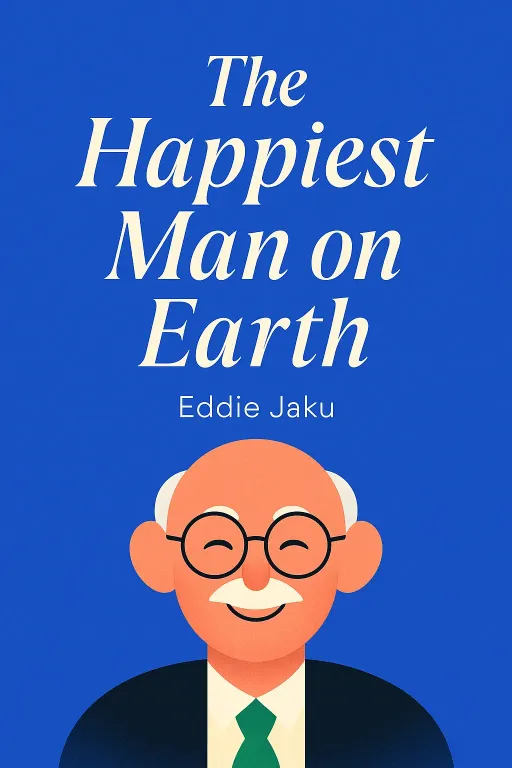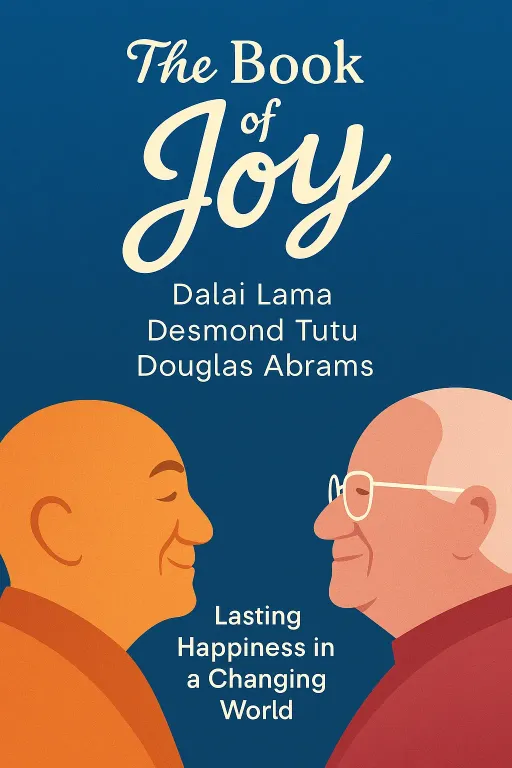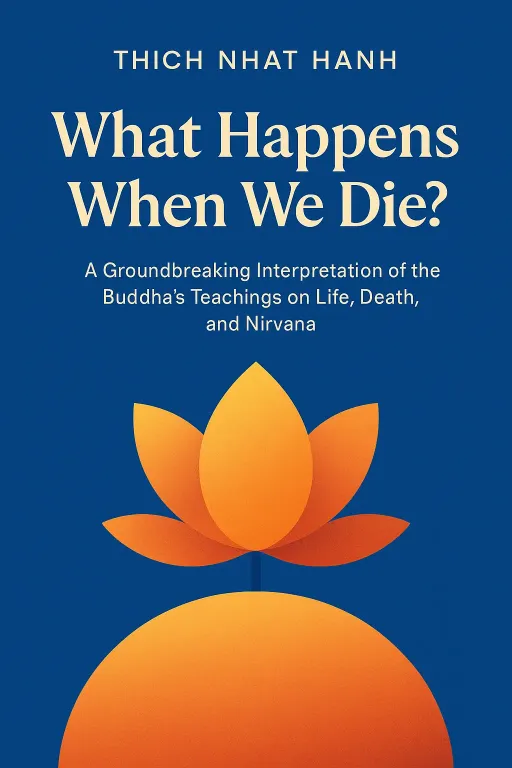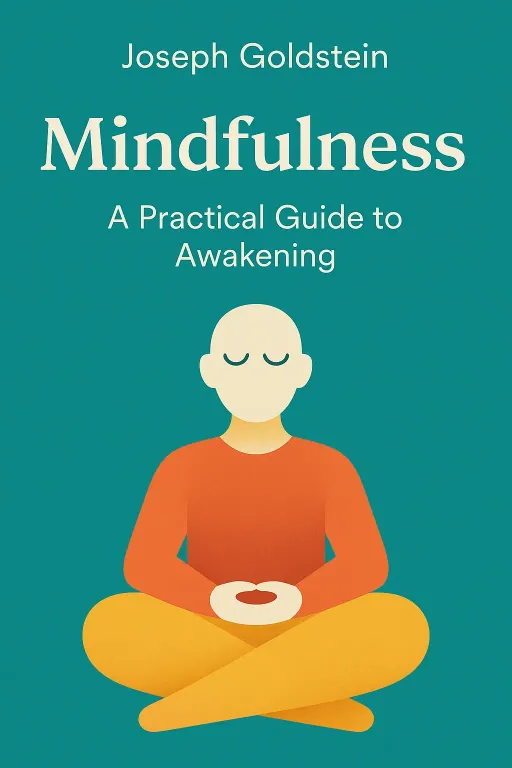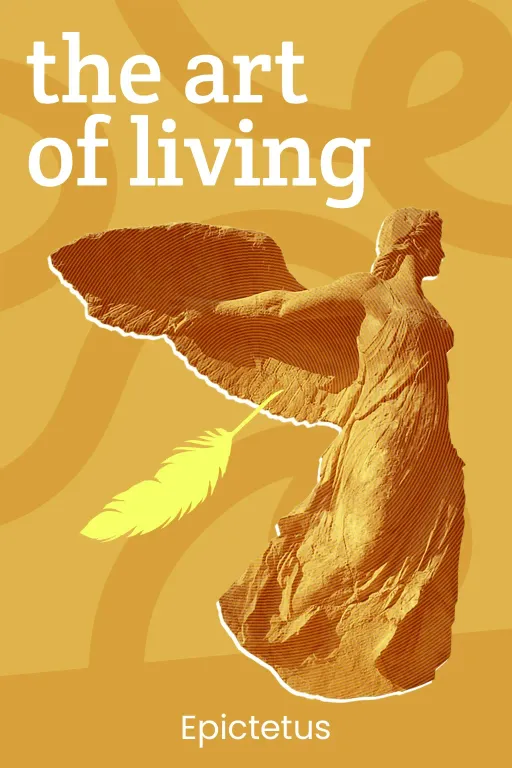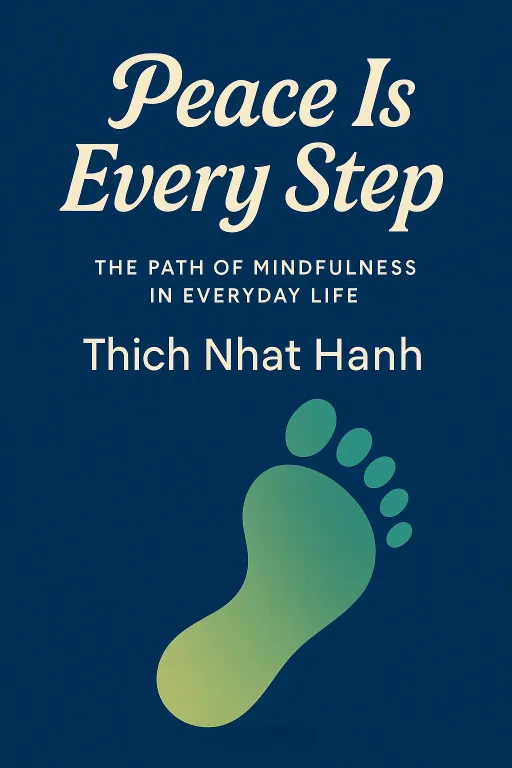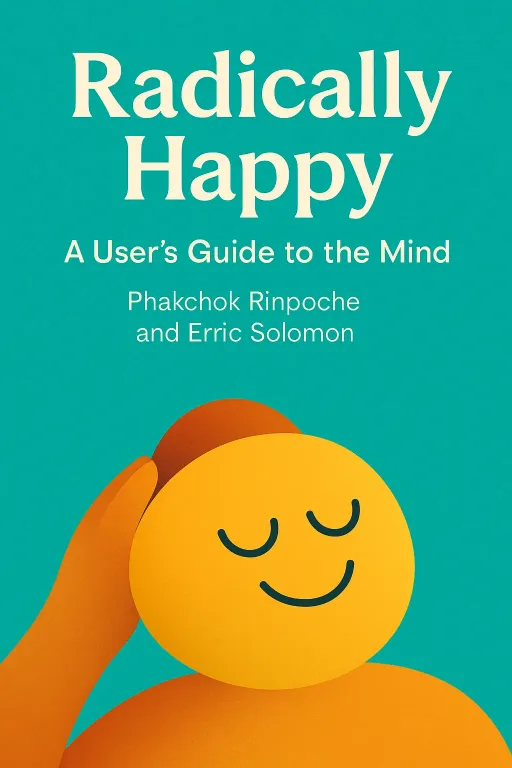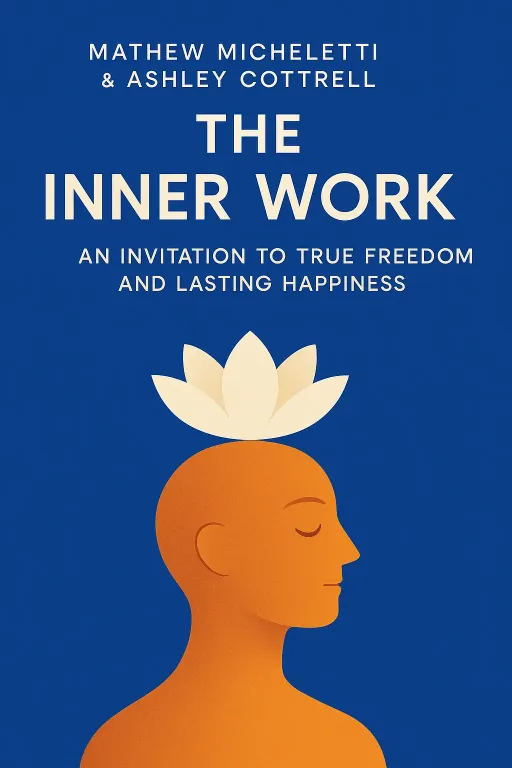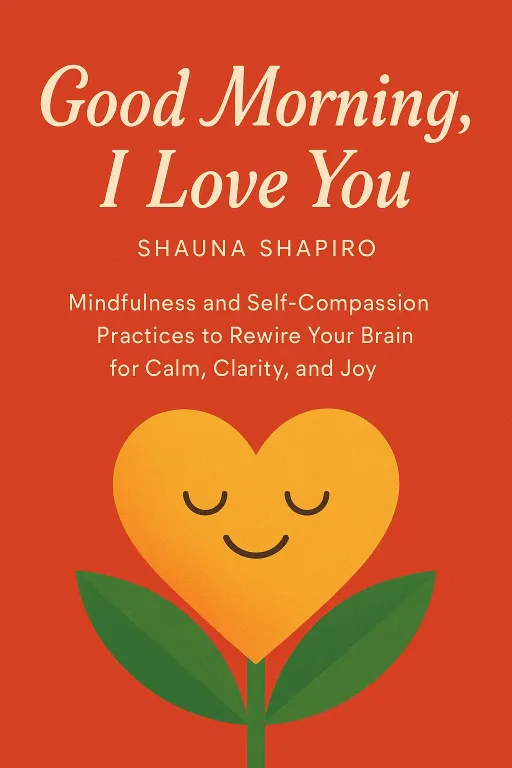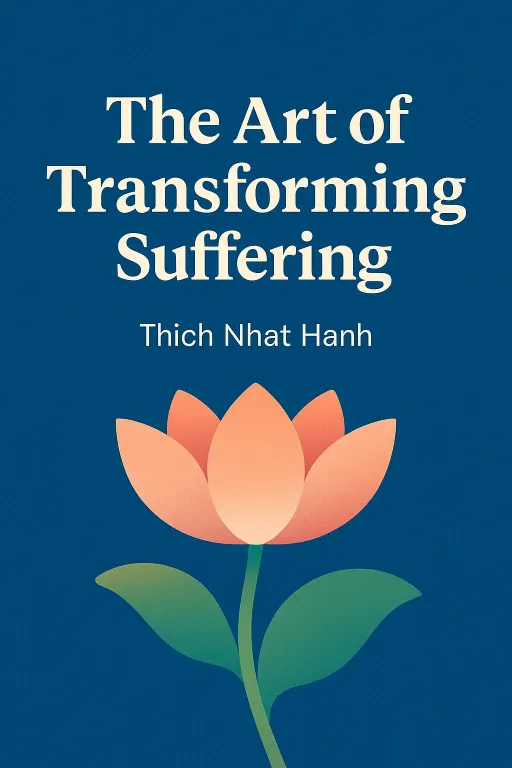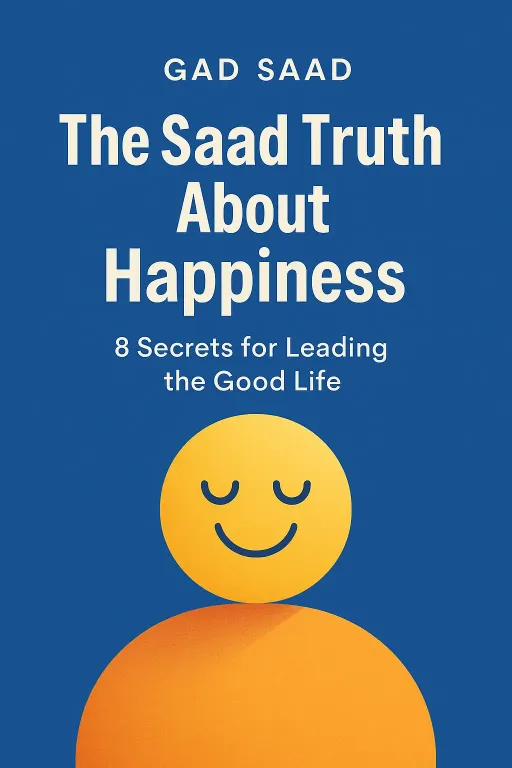
The Saad Truth About Happiness
11 min8 Secrets for Leading the Good Life
Introduction
Narrator: In the mid-1960s in Lebanon, a young mother, already overwhelmed with three children, discovered she was pregnant again. Convinced she couldn't handle another child, she scheduled an abortion. Her husband was firmly against it, and on the day of the appointment, he pleaded with her best friend to intervene. At the clinic, just as she was about to go through with the procedure, her friend asked one last time if she was absolutely sure, reminding her of the incredible potential every life holds. At the top of the stairs, the mother stopped, turned around, and announced she had changed her mind. That child grew up to be Gad Saad, an evolutionary psychologist who attributes his very existence to that single, pivotal decision.
This profound sense of existential gratitude forms the bedrock of his book, The Saad Truth About Happiness: 8 Secrets for Leading the Good Life. Saad argues that happiness isn't a destination to be chased, but rather a byproduct that ensues from making the right choices and adopting a set of powerful, time-tested mindsets. By blending ancient wisdom with modern science, he provides a clear roadmap for navigating the most critical domains of life.
The Two Pillars of a Happy Life: Partner and Profession
Key Insight 1
Narrator: Saad argues that the two most consequential decisions a person will ever make are choosing a life partner and selecting a career. These two choices dictate how we spend the vast majority of our time and emotional energy. An error in either domain can lead to profound misery, while a success can provide a deep and lasting sense of fulfillment.
When it comes to choosing a partner, the book emphasizes that a successful union is built on more than just initial attraction. A spouse should be your best friend—someone you trust, laugh with, and genuinely enjoy being around. Saad shares the story of how he met his wife. He was teaching a course for executives, and she was the one who brought him tea when he was sick and showed genuine interest in his ideas. Her considerate and kind actions, he explains, were what truly sealed the deal. This contrasts with the "door test" from the film A Bronx Tale, where a mobster advises a young man to see if his date unlocks the car door for him. It’s a simple test, but it’s a powerful indicator of a person's selfishness or consideration—small signals that often predict long-term compatibility. Ultimately, Saad concludes that marrying someone means marrying their values and their family, making deep compatibility in these areas essential for lasting happiness.
The Golden Mean: Finding the Sweet Spot in Everything
Key Insight 2
Narrator: The book champions the ancient Greek principle of moderation, often described by the "inverted-U curve." This concept suggests that for almost anything in life, there is an optimal point between two extremes. Too little of a good thing is ineffective, but too much of it becomes detrimental. This isn't just a philosophical idea; it's a universal law that applies across countless domains.
A classic example is the Yerkes-Dodson Law in sports psychology. It shows that an athlete's performance improves with arousal—or stress—but only up to a certain point. A completely calm athlete might lack focus, but an overly anxious one will choke under pressure. The peak performance, the "sweet spot," lies in the middle. This principle extends everywhere: advertising becomes annoying if repeated too often, parental supervision becomes stifling if it's too controlling, and even positive traits like self-criticism can turn into self-loathing if taken to an extreme. The key to a good life, Saad argues, is to constantly seek this balance, recognizing that more is not always better.
Life as a Playground: The Evolutionary Power of Play
Key Insight 3
Narrator: Saad makes a compelling case for treating life as a playground. He challenges the modern notion that play is a frivolous activity reserved for children. Instead, he presents it as a fundamental human need with deep evolutionary roots. Play is how we learn, innovate, build resilience, and foster cooperation. It is, as psychologist Abraham Maslow stated, the source of almost all creativity.
The 1988 film Big serves as a perfect illustration. When a young boy, Josh Baskin, magically becomes an adult, he lands a job at a toy company. His childlike enthusiasm and playful approach to the products make him a star executive, completely outshining his serious, jaded colleagues. His success comes not from experience or strategy, but from his authentic, playful nature. Saad encourages readers to retain this sense of wonder and curiosity throughout their lives. Whether it's through humor, hobbies, or simply approaching work with a lighter mindset, incorporating play makes life more engaging and fulfilling, preventing the stagnation that comes from taking everything too seriously.
The Anti-Fragility of Failure: Why Persistence Builds Strength
Key Insight 4
Narrator: Success is rarely a straight line. According to Saad, it is almost always built on a foundation of persistence, grit, and what author Nassim Taleb calls "anti-fragility." To be anti-fragile is to be more than just resilient; it's to become stronger through adversity. Just as a tree needs the stress of the wind to grow strong roots, humans need to face challenges and failures to develop their full potential.
The book points to numerous examples of highly successful people who faced staggering rejection. J.K. Rowling's Harry Potter was rejected by twelve publishers. Michael Jordan was cut from his high school basketball team. Steven Spielberg was rejected from film school three times. These individuals didn't succeed in spite of their failures; they succeeded because they persisted through them. They learned from their setbacks and refused to let rejection define them. Saad argues that adopting a victimhood mentality breeds misery, while developing an anti-fragile mindset—one that views failure as a necessary part of the growth process—is essential for achieving any worthy goal.
The Regret Minimization Framework: Living an Authentic Life
Key Insight 5
Narrator: One of the greatest thieves of happiness is regret, particularly the regret that comes from inaction—the things we didn't do. The book explores how to combat this by living a more authentic life and actively working to minimize future regret. Authenticity, or the congruence between your internal feelings and external actions, is a powerful defense against looking back on your life with a sense of "what if?"
A powerful modern example of this is Jeff Bezos's "regret minimization framework." When deciding whether to leave his stable, high-paying job to start an online bookstore in the 1990s, he projected himself forward to age 80. He asked himself which he would regret more: trying and failing, or never trying at all. The answer was clear. He knew he would be haunted by the thought of missing the internet revolution. This framework gave him the courage to take the risk that became Amazon. By anticipating future regret, we can motivate ourselves to take bold actions, pursue our true passions, and live a life that is aligned with our deepest values, ensuring our future self has fewer things to lament.
Conclusion
Narrator: Ultimately, The Saad Truth About Happiness delivers a powerful and pragmatic message: happiness is not a mystical state to be found, but a rational outcome to be built. It ensues from a life lived with intention, guided by a few core principles. The single most important takeaway is that we have agency. By making two crucial decisions wisely—our partner and our profession—and navigating life with the mindsets of moderation, playfulness, persistence, and authenticity, we can construct a life that naturally yields contentment and joy.
The book leaves us with a challenging but empowering thought. It asks us to stop outsourcing our happiness to external circumstances and instead take ownership of our choices and our reactions. The real question isn't "How can I find happiness?" but rather, "Am I building a life from which happiness is the inevitable result?"
